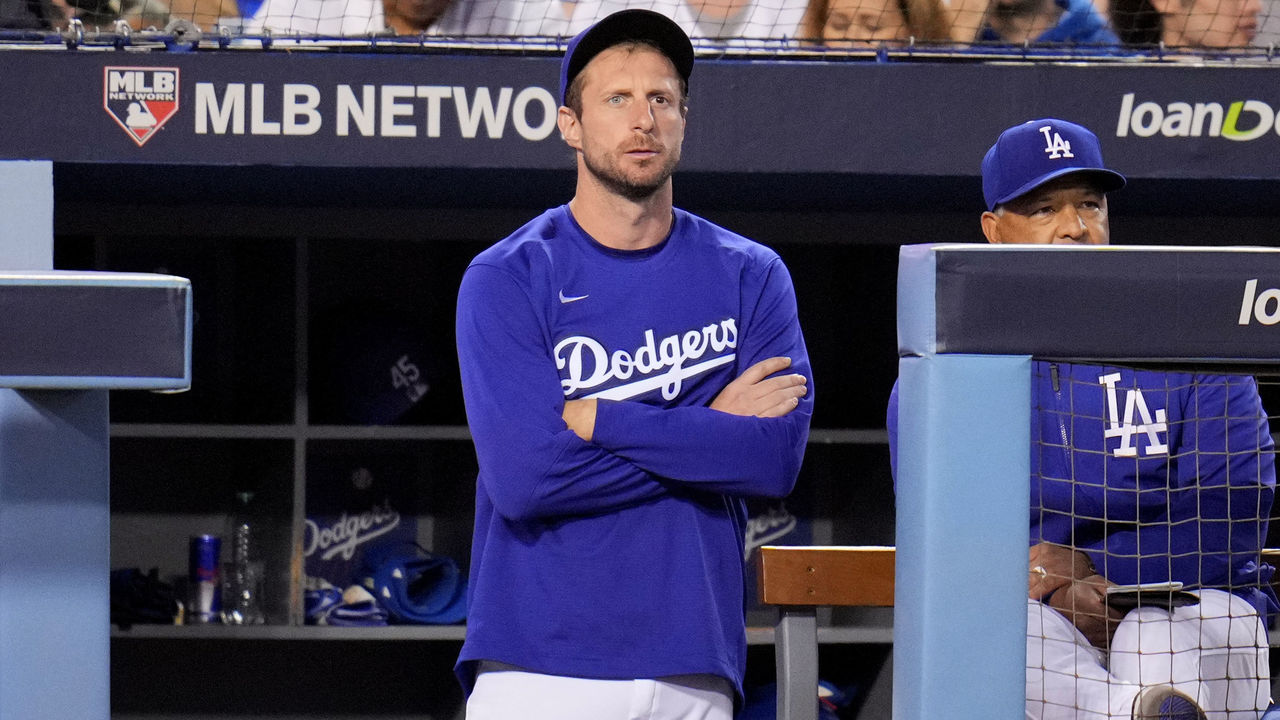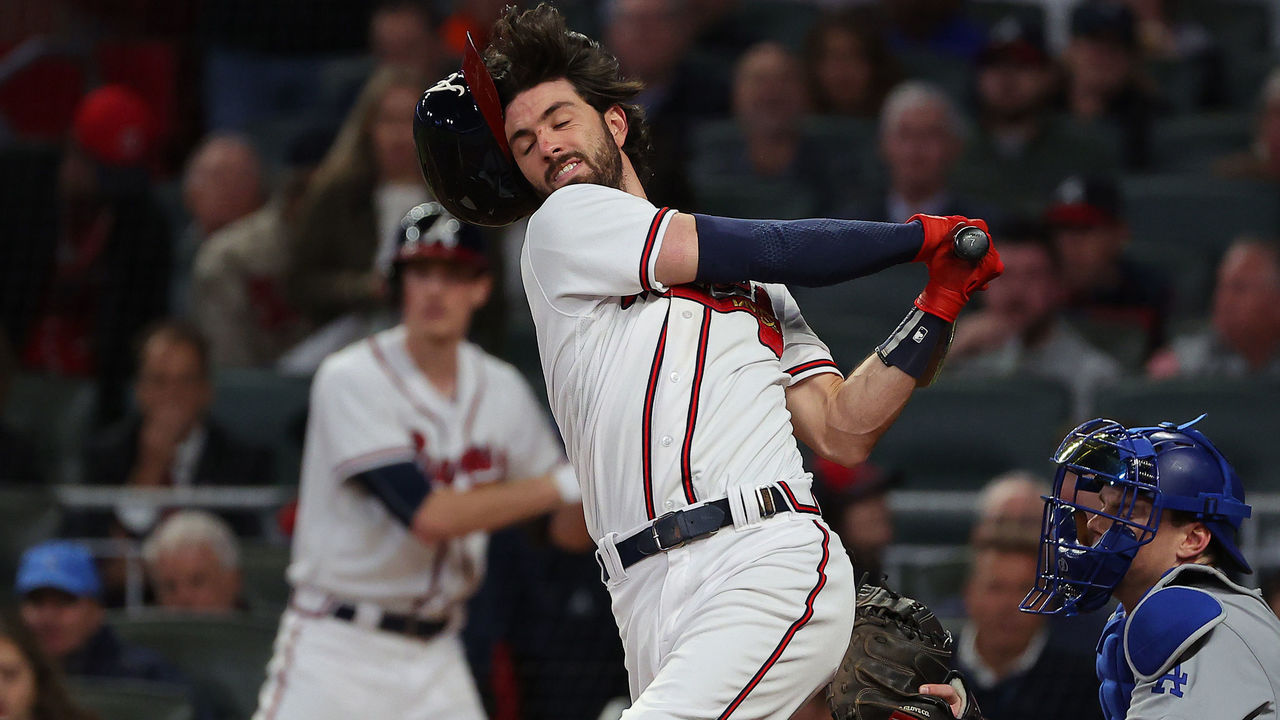Is the postseason game too different from the regular season?
In most major North American professional sports, the game played in the postseason is not so different from the version played during the regular season.
Yes, NBA rotations shrink in the playoffs, and the intensity picks up in the NHL postseason, but isn't that true of any winner-take-all tournament? Quarterbacks still quarterback in much their usual manner. Goaltenders still protect the goal. NBA stars still dominate possessions. And though playing a series format is different from what NBA and NHL teams are accustomed to during the regular season, the nature of what the game is on the court and ice is essentially the same.
But in baseball, the game changes in some meaningful ways when the schedule flips from the regular season to playoffs. It's warping as it relates to who's pitching, and for how long, in October. That raises this question: If the game is played one way throughout a marathon 162-game season - the greatest endurance test in pro sports in terms of game volume - then how differently should it be pitched in the playoffs?
Starting pitchers used to work in the postseason much as they did throughout the campaign: they dominated the innings. But this postseason, when you combine both leagues, the average start is nearly one full inning less (4.04) compared to the regular season (5.02). That's the biggest same-year gap since at least 2000. The difference for American League teams is particularly wide this year, as seen in the table below:
There are even a handful of seasons since 2000 in which starters averaged more innings in the playoffs, such as in 2012 when the average AL playoff starter pitched 6.4 innings compared to 5.9 in the regular season. Among NL teams in 2010, starters averaged 6.2 innings compared to 5.9 the regular season.
The reasons for the recent plummet are numerous.
There are more teams like the Tampa Bay Rays and Los Angeles Dodgers subscribing to the opener and bullpen-game strategies. With the avalanche of data available, teams are more mindful of how pitchers fare when facing opposing hitters two or more times in a game. Managers also try to leverage every matchup advantage they can because postseason outs are so much more precious.
And sometimes, there's just bad luck. An injury to Atlanta Braves Game 1 starter Charlie Morton means the club could need a bullpen game in both Games 4 and 5.
The role of a starting pitcher has fundamentally changed in a particularly meaningful way in October.
In 2020 and 2021, starters - for the first time - pitched less than half of the playoff innings. In October, starting pitchers' preeminence is eroding. While it mirrors the shorter starts in the regular season, the trend is more exaggerated in the playoffs.
After all, it's more difficult to regularly schedule bullpen games from April through September when teams have to play 162 games in 187 days. A bullpen day is difficult during a week with no off days or if a regular starter has a bad game, necessitating heavy bullpen usage.
It's easier to manipulate pitching plans in the postseason with the extra off days and breaks between series. Since the end of the campaign, the Astros have had 12 days off and played 13 games. The Braves have played 12 games and had 13 days off. That rest allows for much different pitching plans and more innings to be concentrated with fewer - and often better - arms.
Fifth and even fourth starters can be shed from playoff rotations. While player rotations tighten in the NBA playoffs, too, it's the ninth or 10th man who loses minutes, not regular contributors like a No. 4 starting pitcher.

But the fluidity of roles in the postseason doesn't always work. We saw it backfire on the Dodgers when they used starter Max Scherzer to close out Game 5 of the NL Division Series. He never fully recovered from the fatigue that caused, coming out of Game 2 of the NLCS in the fifth inning. The persistent ailment then cost him a chance to start Game 6 of the NLCS.
The heavier reliance on relievers in the playoffs means hitters are seeing increased velocity over the regular season.
Average fastball velocity in the regular season has increased nearly every year since pitch tracking was put in place in all MLB stadiums in 2008. The average fastball velocity reached a record of 93.7 mph this year. But in the playoffs, that velocity is even greater, as relievers - who generally throw harder than starters - take on more work. The postseason average velocity of 95 mph in the last two years is a record.
The velocity increase translates to slightly more strikeouts in the playoffs compared to the regular season.

As I wrote last week, one pitching change adds about 10 minutes to a contest. And pitching changes certainly add more breaks in the modern game with the extra time involving TV commercials and relievers working more slowly than starting pitchers.
After setting a dubious record for game length in the regular season of 3 hours and 11 minutes, postseason games are also averaging a record: 3 hours and 40 minutes. It's a way the sport doesn't want to be warping.
There hasn't been a postseason complete game since Houston Astros right-hander Justin Verlander beat the New York Yankees 2-1 in Game 2 of the 2017 ALCS. There have been only 11 in the last 10 years - three by Madison Bumgarner, two by Verlander, and two by Johnny Cueto. The game has changed a lot fairly quickly. We may never again see a performance like Hall of Famer Jack Morris' when he pitched 10 full innings to beat Atlanta 1-0 in Game 7 of the World Series.
Travis Sawchik is theScore's senior baseball writer. Follow him on Twitter at @Travis_Sawchik.